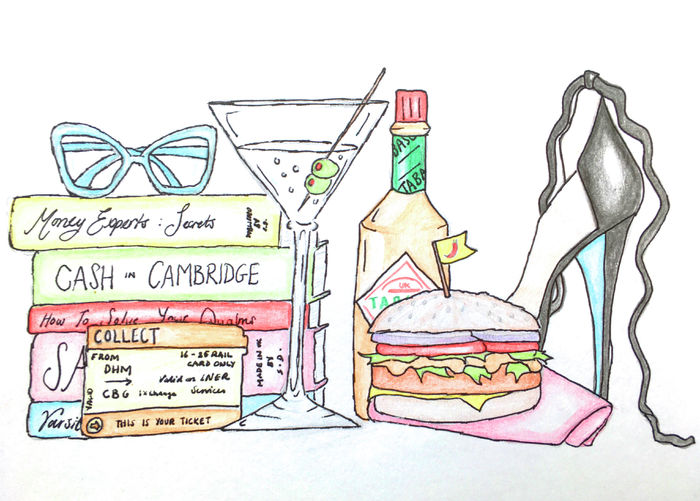Friendship breakups can be as hard as romantic ones. So where’s the support?
An anonymous student explores how heartbreak isn’t restricted to romance, and tells us why we should take the emotional and physical fall-out of a friendship break-up just as seriously as the end of a relationship

Nearly five years ago, my life completely changed: I lost my best friend.
It was the start of sixth form and I was full of optimism: finally, I could focus on the subjects that interested me, and, even better, my best friend would be joining me at my school. I believed that many years of difficult secondary school friendships would pale into insignificance. At last, I would have my best friend by my side and, without sounding too glib, everything would be great.
The end of a friendship can be as traumatic as a romantic break-up
The unfortunate reality was that everything was far from great. I was soon dropped by my so-called ‘best friend’ for not being part of a particular clique. Other friends pulled away, for a myriad of painful reasons; slowly, the sixth form experience I had so looked forward to became a social nightmare.
The breakup of a friendship can be as traumatic, if not more so, than the breakup of a romantic relationship. My loneliness was intense, overwhelming and terrifying, causing my physical health to rapidly decline, which led to me developing IBS. The illness made me feel even more isolated and alone, particularly as my doctor told me (falsely) that it was very rare for someone under 40 to develop this health condition. Nonetheless, in a matter of a few short months, I had gone from being relatively happy to being wracked with an inescapable sense of loneliness.
Olivia Laing’s The Lonely City certainly chimes with my own experiences. Laing explains how her isolation in a new city, without friends or family, made her lose her appetite and made her hair fall out. The physical effects that loneliness and a lack of friendship had upon her suggests that we should take friendship breakups more seriously. However, at the moment there seems to be a lack of parity between how we respond to a romantic breakup and societal treatment of a breakdown in a friendship.
But breakups also have the potential to be liberating, and may even be an opportunity for personal growth
When a friend tells us tearfully that they have broken up with their girlfriend/boyfriend/partner, we hurry to comfort them with ice cream and sympathy. We console them through the breakup and encourage them, when they are ready, to ‘get back out there’. However, with regard to friendship breakups, we seem to not know quite what to do, and, at least in my personal experience, little empathy or consolation is offered.
One reason for this is the primacy of romantic relationships in the modern world. Compared to the myriad of dating apps to help people find love, there are very few apps solely dedicated to engendering new friendships. But, as we all know, the pain of losing a beloved friend, or slowly drifting apart from a pal, can be just as heart-breaking as the breakup of a romantic relationship, making it all the more necessary to treat the end of a friendship just as seriously.
Although the ways we conduct friendships now are considerably different from those used in the past, there is surely still a yearning for genuine connection. Social media prizes a quantifiable view of friendship, but as a society, we are lonelier than ever. This phenomenon has even been recognised by Parliament, who appointed a Loneliness Minister in 2018.
However, while it is important to combat isolation by reaching out to others and establishing new friendships, what I have realised is that it can be just as important to sit with loneliness. Friendship breakups, much like romantic breakups, can be liberating and may even be an opportunity for personal growth.
What my difficult past experiences have taught me is that friendship needs to enhance our lives, and if it doesn’t there should be no shame in walking away from a toxic situation. I’d like to think that maybe the loss of my best friend was something positive after all.
 News / Colleges charge different rents for the same Castle Street accommodation2 March 2026
News / Colleges charge different rents for the same Castle Street accommodation2 March 2026 News / King’s hosts open iftar for Ramadan3 March 2026
News / King’s hosts open iftar for Ramadan3 March 2026 News / Angela Merkel among Cambridge honorary degree nominees27 February 2026
News / Angela Merkel among Cambridge honorary degree nominees27 February 2026 Theatre / Lunatics and leisure centres 4 March 2026
Theatre / Lunatics and leisure centres 4 March 2026 News / News in Brief: waterworks, wine woes, and workplace wins 1 March 2026
News / News in Brief: waterworks, wine woes, and workplace wins 1 March 2026








